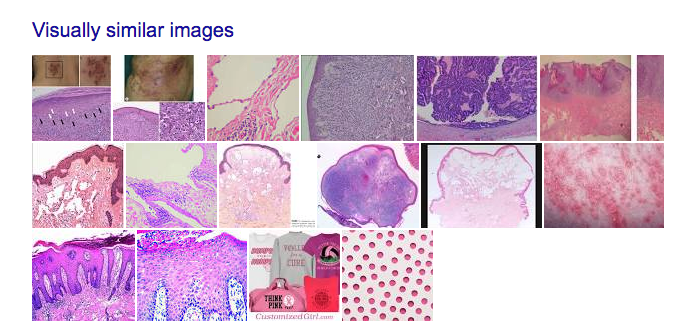Patients and non-dermatology clinicians have been warned against using Google’s reverse image search tool to try identify skin lesions on photographs.
The search tool is reportedly being used by the public and some clinicians to try confirm the images of common skin cancers such as BCC, SCC and melanoma, but it has proved highly inaccurate in a small test of complex skin cases.
When dermatologists at Harvard Medical School used Google reverse image search tool on 46 high-quality clinical images derived from JAMA’s Clinical Challenges they found it provided only one correct diagnosis among the top ten search results.

Many of the “visually similar images” provided by the Google image tool were not even skin related and included cosmetics, textiles and animal hides, the Harvard researcher said
And the results were little better when the search was performed with the addition of the cue word “skin” they say in their report published in the Journal of the American Academy of Dermatology.
They noted that previous assessment of the Google reverse image tool found its database did not include matches for cases such as cutaneous lymphomas, cutaneous metastases or rare neoplasms such as Merkel cell carcinoma.
“The findings herein underscore concerns that patient- and non-dermatology clinician-initiated image searches may lead to missed diagnoses across a broad range of dermatologic conditions, thereby presenting significant danger to patients,” they said.
They added that the findings highlighted the shortcomings of the Google Reverse Image Search Artificial Intelligence algorithm, and likely reflected the fact that the Google image database was too broad and contained few examples of complex dermatology cases
“We propose that clinicians and patients would benefit from a novel dermatological database using its own repository of clinical images and AI that is developed to be suitable for function as a diagnostic aid in skin, a goal that perhaps the Academy should lead,” they suggested.